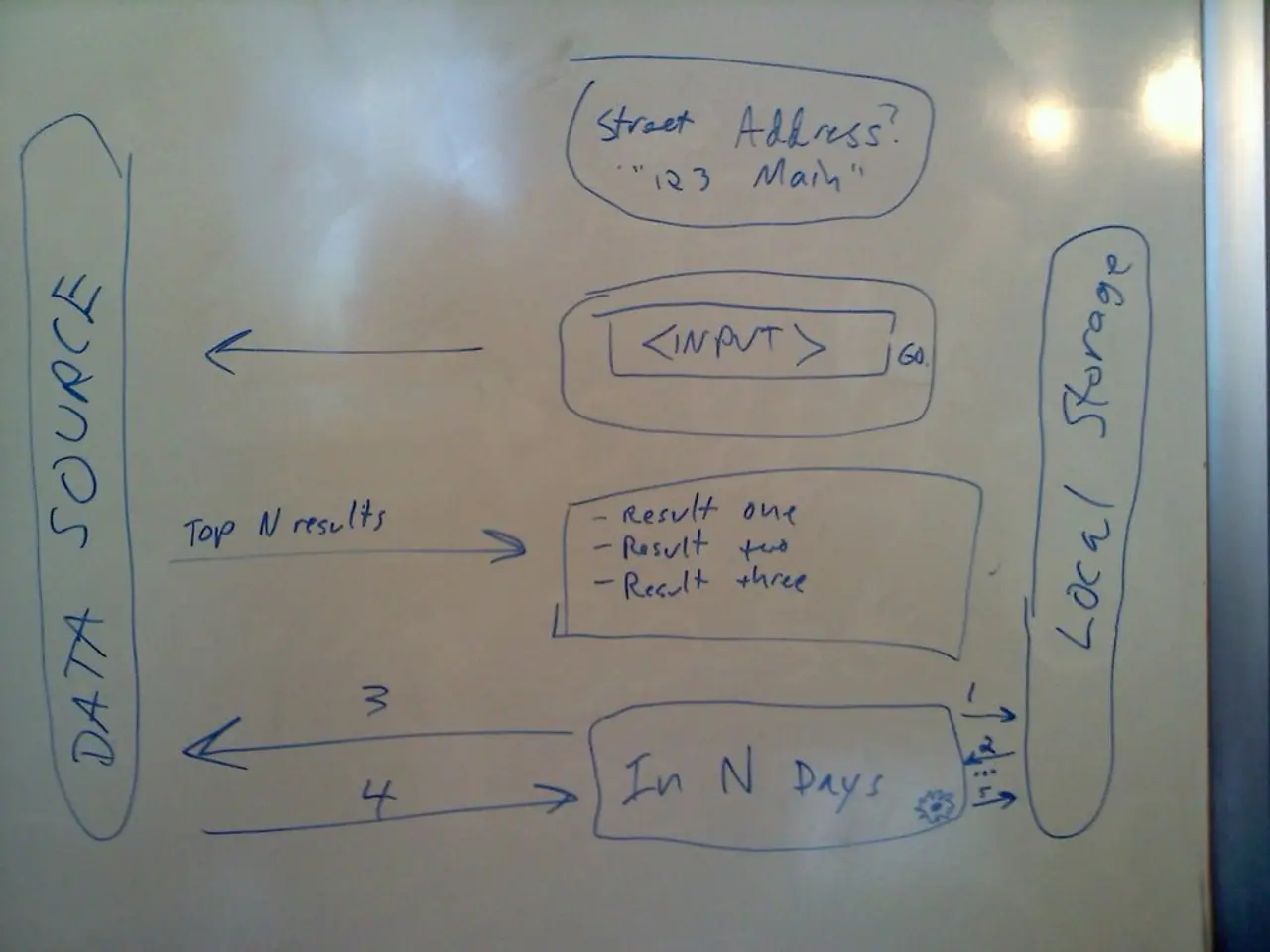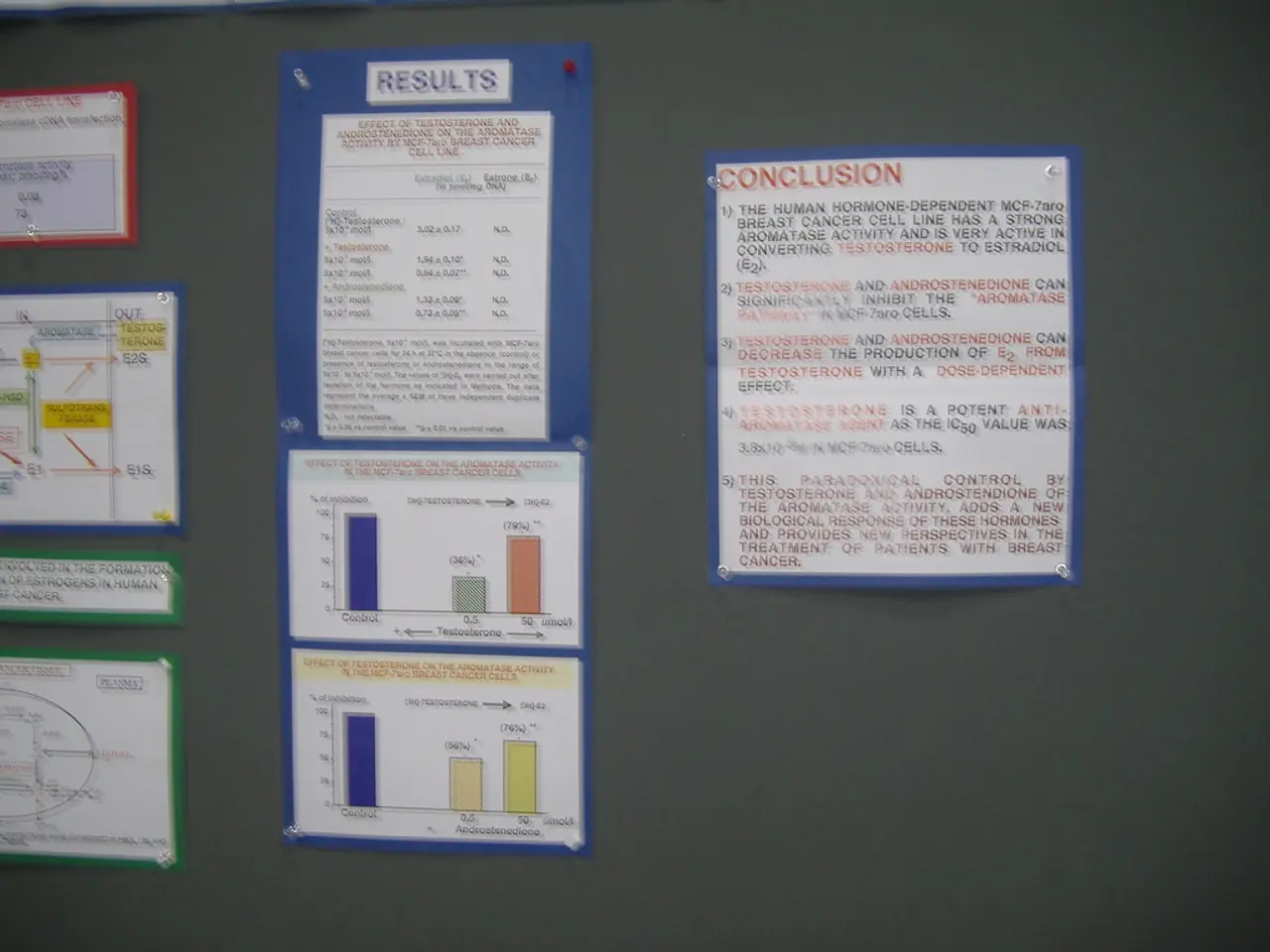Centene Experiences Unexpected Loss, Stock Plummets, UnitedHealth Group in Control
The U.S. healthcare insurance sector is currently in a state of flux, with Centene Corporation's latest financial results adding to the uncertainty. Centene, a specialist in Medicaid and Medicare services, reported a loss of $0.16 per share in adjusted earnings for the second quarter, falling short of analysts' expectations of a profit of $0.23 per share.
The company's quarterly sales figure of $48.7 billion exceeded the estimated $44.2 billion, but the loss has raised concerns among investors. Centene's current market capitalization stands at around $12 billion.
Centene's CEO, Sarah M. London, expressed disappointment with the results but remains optimistic about restoring profitability. In pre-market trading, Centene's stock is plummeting by double digits.
The company's profitability is being impacted by several factors. Rising medical costs have been a significant concern, with a 17.8% year-over-year increase reported in Q2 2025. Cost drivers include higher medical costs in Medicaid, particularly related to behavioral health, home health care, and expensive drugs, as well as increased Marketplace medical costs.
Centene also experienced a significant reduction in net risk adjustment revenue transfers for 2025, by approximately $1.8 billion. This reduction impacts earnings substantially since risk adjustment payments compensate insurers for enrolling higher-risk members. The company’s previous risk adjustment assumptions were materially inconsistent with updated industry data.
Another challenge for Centene has been the decline in Medicaid membership. The company lost about 500,000 Medicaid members compared to Q2 2024, mainly due to redeterminations related to eligibility changes. Lower membership reduces revenue streams from this segment.
The company has also increased its premium deficiency reserve for Medicare Advantage, which represents anticipated future losses based on current earnings trends, further pressuring profitability.
Centene faces legal and regulatory challenges as well. The company is currently embroiled in a lawsuit alleging inadequate access to mental health coverage through a subsidiary in Arizona, which may result in financial or reputational costs.
In response to these uncertainties, Centene has retracted its earlier 2025 EPS guidance. The company now projects a sharply lower full-year EPS around $1.75, down from a prior estimate of $7.25 per share, reflecting worsening cost and market conditions.
The news from Centene follows negative reports in the sector, with UnitedHealth, the largest U.S. health insurer, also being affected. UnitedHealth gave up all its pre-market gains following Centene's report. Centene's stock is down another 15% and has hit a new multi-year low.
Investors should exercise caution due to the market's numerous risks and uncertainties, despite the current stock prices of Centene, UnitedHealth, and others appearing attractive.
[1] Centene Corporation Q2 2025 Earnings Release [2] Centene Corporation Q2 2025 Conference Call Transcript [3] Centene Corporation 2025 EPS Guidance Withdrawal [4] Centene Corporation Legal and Regulatory Updates
Centene Corporation's revenue for the second quarter was $48.7 billion, but the reported loss of $0.16 per share has raised concerns among investors due to factors such as rising medical costs, a reduction in net risk adjustment revenue transfers, decline in Medicaid membership, and increased premium deficiency reserve for Medicare Advantage. Centene's profitability challenges also include legal and regulatory issues, including a lawsuit alleging inadequate access to mental health coverage. As a result, Centene has retracted its 2025 EPS guidance and investors should exercise caution with the company's stock, despite its currently low prices.




